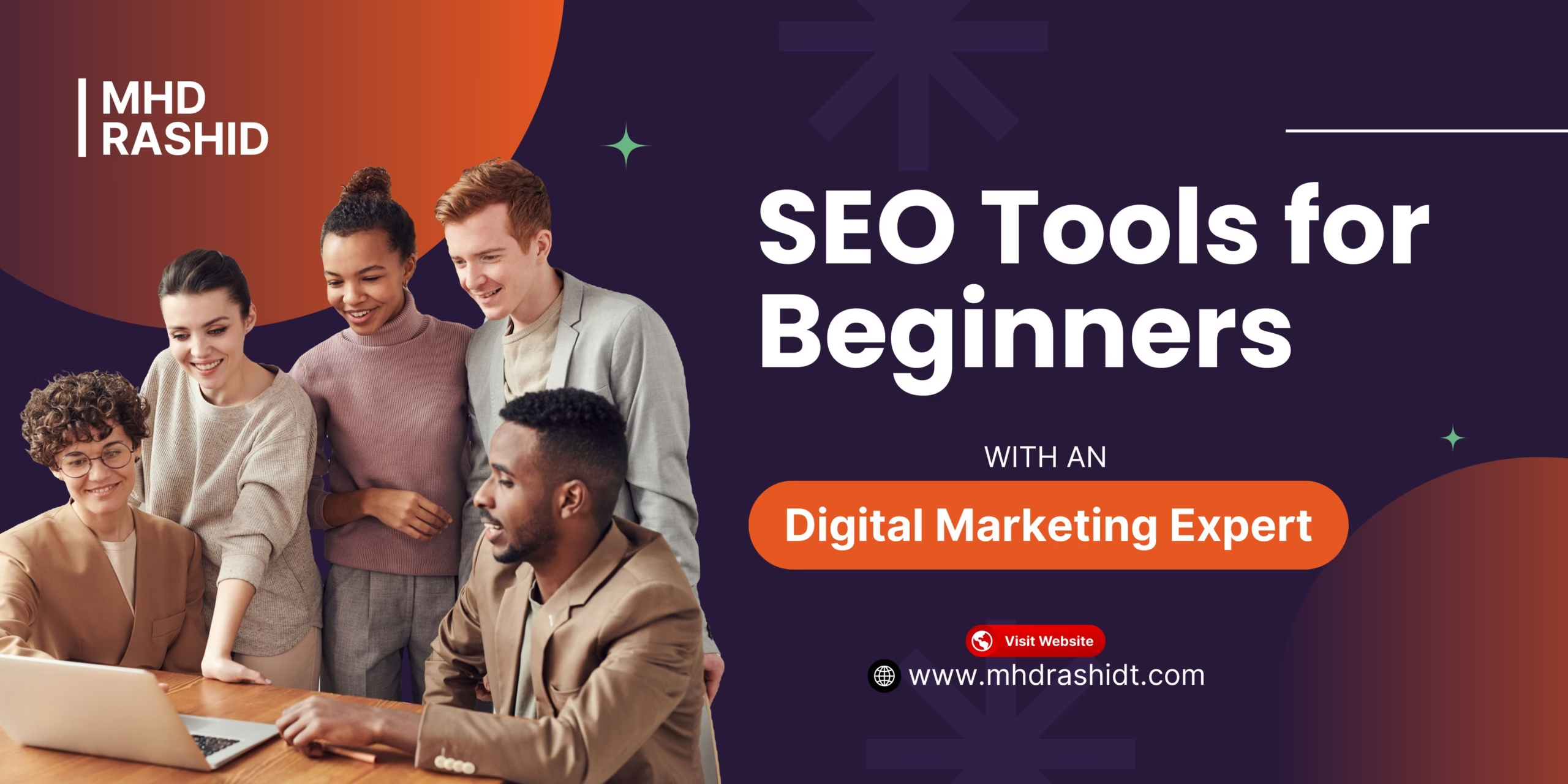
If you’ve just started a website or blog, you may have heard about SEO. It stands for Search Engine Optimization, and it’s the process of making your website visible on Google and other search engines. But here’s the challenge—SEO often sounds complicated. Technical terms, endless tools, and strategies can easily confuse beginners.
That’s why having the right SEO tools for beginners is so important. These tools make the process easier, faster, and less stressful. They guide you step by step, even if you have zero technical knowledge.
Think of it this way: if SEO is like cooking, then SEO tools are your recipes and kitchen gadgets. They tell you what ingredients you need, how to mix them, and how long to cook them. With the right tools, you can prepare something that not only looks good but also tastes amazing—just like getting your website ranked higher.
As a freelance digital marketer in Malappuram, I’ve worked with many beginners who were afraid of SEO at first. But once they started using beginner-friendly tools, they gained confidence. They saw their websites appear on search engines and even attract customers.
With the right SEO tools for beginners, you can learn step by step and see real results. In this blog, I’ll walk you through some of the easiest and most powerful SEO tools. From my work as a digital marketer in Kerala, I’ll add practical insights you can use right away.By the end, you’ll have a clear roadmap to improve your website visibility without feeling lost.
Why Beginners Need SEO Tools
Starting out in SEO without tools is like driving blindfolded. Sure, you can make progress, but it’s guesswork without clarity. SEO tools shine a light on what’s working and what’s not.
They help you:
- Find the right keywords people are searching for
- Check if your website loads fast enough
- Discover what competitors are doing
- Track how well your content performs
- Fix errors that may stop your site from ranking
Even as a digital marketing expert in Kerala, I still rely on tools every day. They save time and make the work more accurate. Beginners should use them from day one.
Keyword Research Tools
Keywords are the backbone of SEO. Keywords are what people type into Google when they need information, products, or services. To attract visitors, you need to know what keywords they use.
Google Keyword Planner
This free tool helps you find search terms related to your niche. For example, if you write about healthy recipes, the tool can suggest terms like “easy breakfast ideas” or “low-carb meals.” It also shows how many people search for each keyword.
Ubersuggest
Created by Neil Patel, Ubersuggest is beginner-friendly. It not only gives keyword suggestions but also shows how hard or easy it is to rank for them. It also lets you check which keywords your competitors are ranking for.
Tip: As a freelance digital marketer in Malappuram, I recommend beginners start with long-tail keywords (phrases with 3–4 words).
On-Page SEO Tools
On-page SEO means optimizing the content and pages of your website. Tools can help you make sure your website is user-friendly and search-engine-friendly.
Yoast SEO (WordPress Plugin)
Yoast SEO is like having a personal SEO coach inside your website. It tells you if your content has enough keywords, if your sentences are too long, and if your meta descriptions are well-written. It even uses a red, yellow, green light system to guide you.
Rank Math
Another excellent plugin, Rank Math, is very popular in India. It’s lightweight and offers advanced features even in its free version. As someone who works as a digital marketer in Kerala, I often suggest Rank Math to clients because it’s easy to use and very effective.
Technical SEO Tools
Even though technical SEO can seem overwhelming, tools simplify the process. They highlight important factors like page speed, site security, and technical errors that affect your site’s performance.
Google PageSpeed Insights
This free tool shows how fast your website loads on mobile and desktop. A slow website can push visitors away, but with the tips provided, you can improve speed.
Screaming Frog SEO Spider
This tool scans your website and points out issues like broken links or missing titles. Beginners may find it overwhelming at first, but even using its basic features can give valuable insights.
Content Optimization Tools
Great content attracts both readers and search engines. But sometimes, you may not know if your content is optimized. That’s where these tools help.
Grammarly
SEO is not just about keywords; it’s also about readability. Grammarly checks grammar, spelling, and tone. Clear writing keeps visitors engaged, and engaged visitors mean better rankings.
Hemingway Editor
With this free editor, you can turn long, difficult sentences into short, clear ones. It highlights where your text gets too complex and gives you easier options. That’s why beginners enjoy using it—it makes writing feel lighter and less overwhelming.
Backlink Tools
A backlink is when one website sends its readers to your site through a clickable link. For search engines, these links act like endorsements for your content.
Ahrefs
Ahrefs is a powerful tool, but beginners can use its free features like checking how many backlinks their website has. It also helps find opportunities to get links from other sites.
Moz Link Explorer
Moz is beginner-friendly and offers a free version. You can check the domain authority of websites and see where your competitors are getting backlinks.
Tracking and Analytics Tools
Without tracking, you won’t know if your SEO efforts are working. Analytics tools show what’s going well and what needs fixing.
Google Analytics
It’s free and essential. It shows how many people visit your site, where they come from, and what pages they like the most.
Google Search Console
This is another free tool by Google. It tells you if your website has errors, what keywords bring visitors, and if Google can properly see your site.
Tip from MHD Rashid: Set up both Google Analytics and Google Search Console from the start. They give you a complete picture of your website’s performance.
Practical Tips for Beginners
Starting with SEO can feel overwhelming. With so many SEO tools and strategies available, it’s easy to get lost or give up too soon. But here’s the good news—you don’t need to do everything at once.
Start Small
- One of the biggest mistakes beginners make is trying to use every tool they hear about. The truth is, you don’t need them all. Start with the basics. Free tools like Google Analytics and Yoast SEO are more than enough in the beginning. Google Analytics helps you understand your visitors, while Yoast guides you in writing SEO-friendly content. Once you’re comfortable with these, you can explore other SEO tools. Taking it slow is perfectly fine.
Be Consistent
- t’s about being consistent. For example, if you publish a blog post, don’t just leave it there. Use your SEO tools to check if it’s optimized, track its performance, and update it when needed. Even spending 15–20 minutes daily on SEO tasks can make a big difference over time.
Learn Step by Step
- SEO tools has many parts—keywords, backlinks, content, technical fixes, and more. If you try to tackle all of them in one go, you’ll get frustrated. Start with keyword research since it’s the foundation. Then move on to on-page SEO, like optimizing titles and meta descriptions. Once you’re confident, explore technical SEO. This step-by-step approach makes learning easier and less stressful.
Keep It Simple
- SEO tools doesn’t have to be complicated. Beginners often overthink and get stuck. Remember, tools are there to guide you, not confuse you. For instance, if a tool highlights a missing keyword, just add it naturally into your content. If it suggests shorter sentences, rewrite them in a simple way. Don’t chase perfection. The goal is progress, not complexity. Even small improvements add up over time.
- Final Tip: Stay patient. SEO takes weeks or even months to show results. But if you start small, stay consistent, learn step by step, and keep things simple, you’ll see progress. And once you do, you’ll feel motivated to keep going.
Conclusion
SEO may look complicated, but the right tools make it much easier. For beginners, using SEO tools for beginners is like learning with training wheels. They help you balance, stay on track, and eventually ride on your own.
We looked at different categories of SEO tools —keyword research, on-page SEO, technical SEO, content optimization, backlinks, and analytics. Each of these plays a role in making your website more visible. The best part is that most of these tools are free or have free versions.
As MHD Rashid, a freelance digital marketer in Malappuram, I’ve seen how beginners transform their websites once they start using these tools. Whether you’re a student, blogger, or small business owner, you don’t need to be an expert. With a little consistency, you can grow your site step by step.
If you’re aiming to grow online, trust me—start with the right SEO tools for beginners. They are simple, powerful, and will give you confidence. And if you ever feel stuck, reaching out to a digital marketer in Kerala can give you the extra push you need. Remember, even the most skilled digital marketing expert in Kerala started as a beginner.
SEE MY PORTFOLIO ; visit here
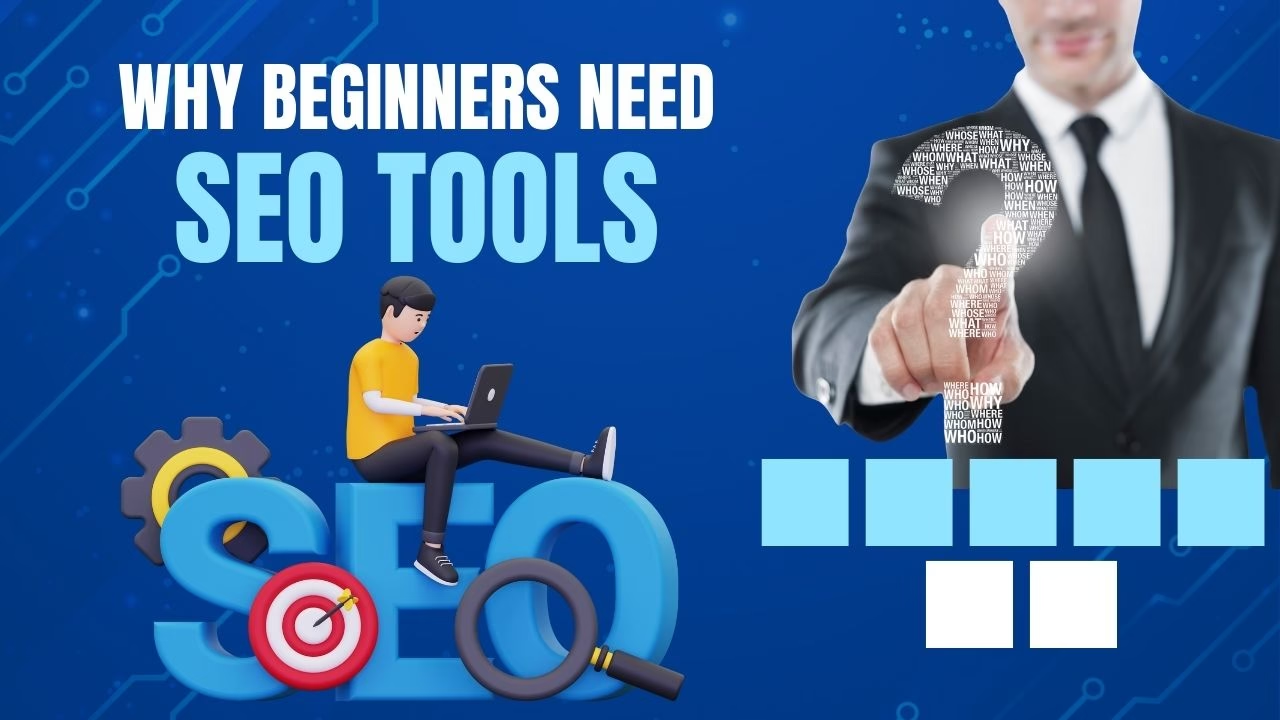

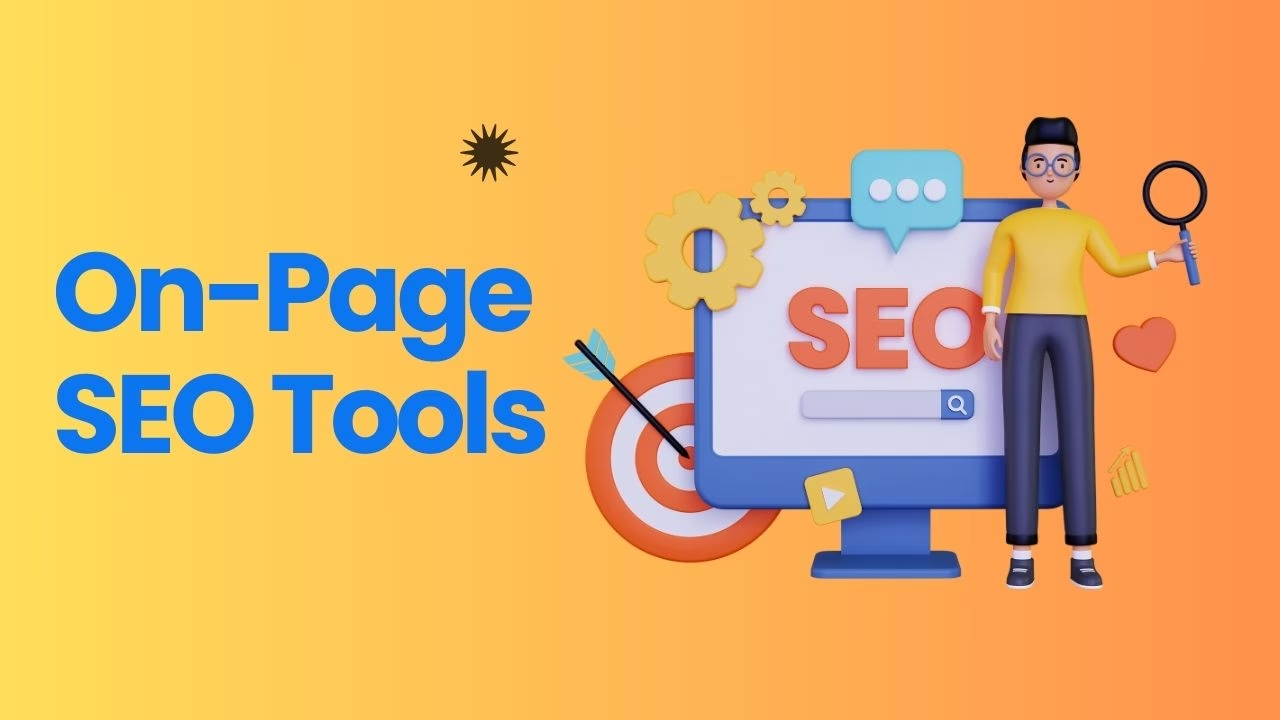
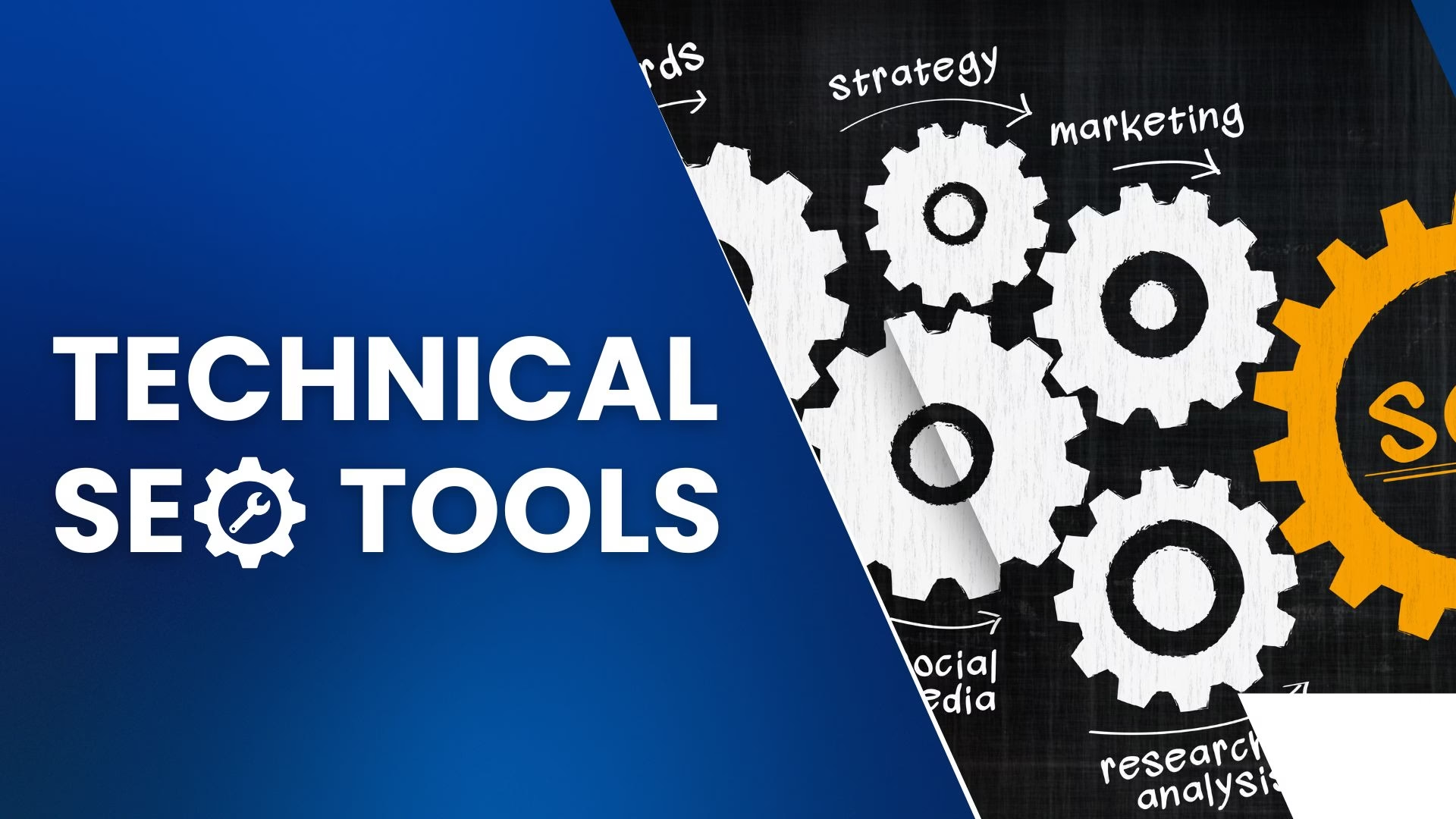
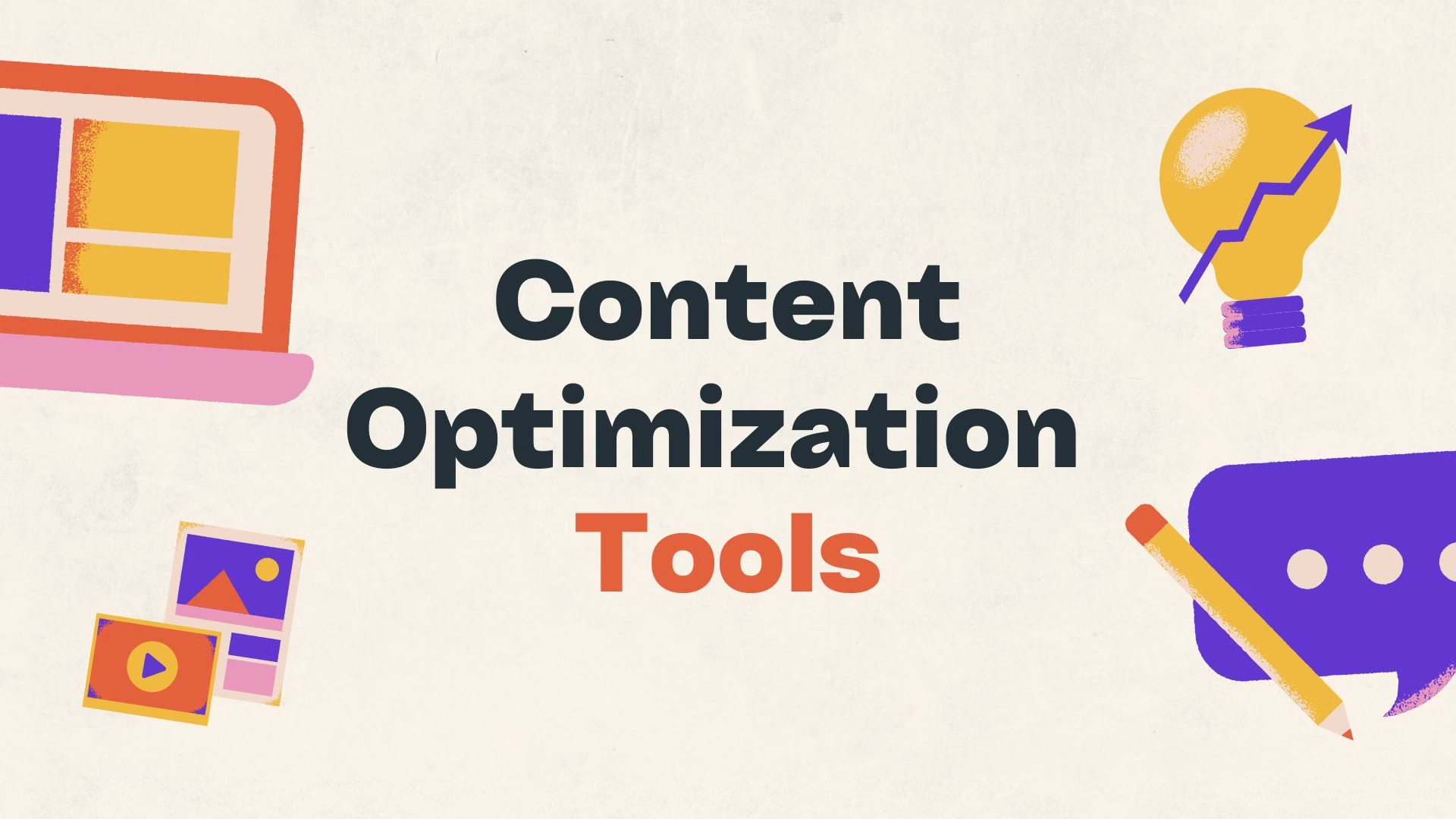

Thanks for sharing. I read many of your blog posts, cool, your blog is very good.
Thank you for your sharing. I am worried that I lack creative ideas. It is your article that makes me full of hope. Thank you. But, I have a question, can you help me?